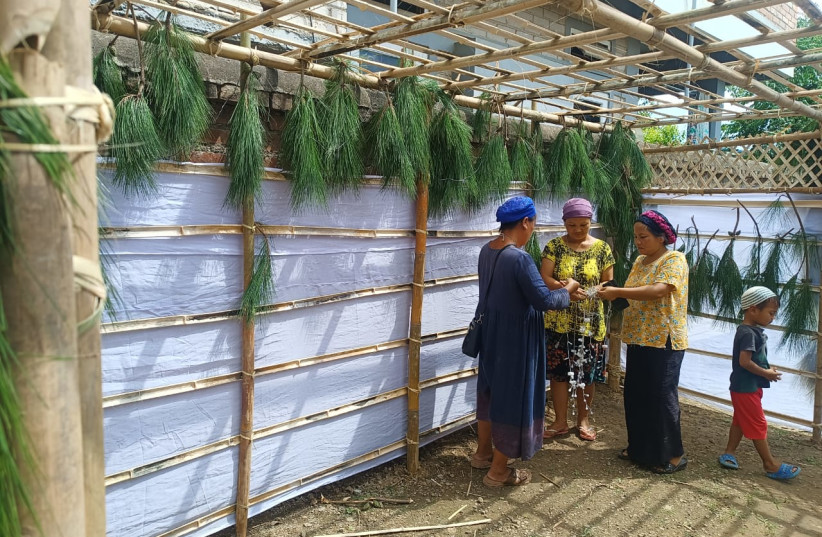Hol Hamoed, the intermediate days of Sukkot, are unlike any other period of time in Israel. If it sometimes appears that nearly the whole country is outside, that’s because they are.
With schools closed and many businesses shuttered, the week turns into a collective national vacation with all of its positives and negatives.
Thankfully, there’s no limit to what one can do during Hol Hamoed. The best of Israel is on display, with events, festivals, concerts, and activities staged nationwide.
Just as attractive – if not more so – is the country’s amazing coastline of beaches and its extensive network of national parks that offer a breathtaking array of sights, hikes, streams, waterfalls, and antiquities. The history of the country, the region, and the Jewish people are also on display, whether in the Golan’s Gamla, Jerusalem’s Old City, Herzliya’s Appolonia, or Arava’s Timna, and everything in between.
There’s simply so much to see and do, that a few days of Hol Hamoed (luckily this year, it’s a full spread of days until Friday) is never enough.

The worst of Israel is often on display
Unfortunately, with that concentration of revelers, combined with the thousands of tourists who descend on the country for Sukkot, the worst of Israel is often on display.
The roads, which are generally problematic at best, and usually a gigantic parking lot at various times of the day, get even more congested. The much-needed building of new roads, light rail systems, and interchanges have turned the country into a construction site and the difficulties in getting around are exacerbated during Hol Hamoed.
Public transportation, which commuters should already be using whenever possible to alleviate the burden on the roads, tends to also be jam-packed during Hol Hamoed. Taking a train or a bus is an exercise in personal space invasion and close encounters of an unasked-for-kind.
When vacationers eventually arrive at their destination, they are more likely than not met with long lines and unruly behavior.
However, all of that pales to the way that some Israelis treat the pristine natural nature attractions. Trash is left on the ground, creating sore eyes for those forced to maneuver around the mess and an environmental hazard for the natural habitat and animals who live there.
Since the factors that make up the convergence of so many people in so many places in such a concentrated time are not going to change, the only way to make the experience more pleasurable for all and sustainable for the environment is for our actions to change.
For starters, be patient. Whether you’re in a traffic jam or in line to get into Tel Dan, remember to take a breath and remember that everybody is in the same proverbial boat. Road rage or needless fights over space will not get you there any faster.
That melds into the next suggestion – be considerate. With the big families and the still-summery heat, nerves are certain to be frayed. Think about the other, whether it’s offering some water to a fellow hiker who is having a hard time or letting someone cut in front of you in line because they have an older grandparent with them will go a long way to make their day better and make you feel good yourself.
Keep the noise down. Whether it be blasting music in the middle of a forest picnic or laying on the car horn out of frustration, noise pollution can be one of the most irritating aspects of being out and about on Sukkot.
Most importantly, clean up after yourselves. Don’t leave a mess in public places, especially nature reserves and parks. Not only is it unsightly, but it can present a danger to the nearby wildlife and bodies of water.
The fact that so many Israelis are out exploring every facet of the country during Hol Hamoed is proof that Israelis realize they are living amid treasures to be enjoyed and savored.
To ensure that we can keep doing that and enable future generations to also partake in the delights Israel has to offer, it’s incumbent on all of us to take pride in our surroundings and do our part to lower the stress, increase the pleasure, and truly enjoy the holiday.
